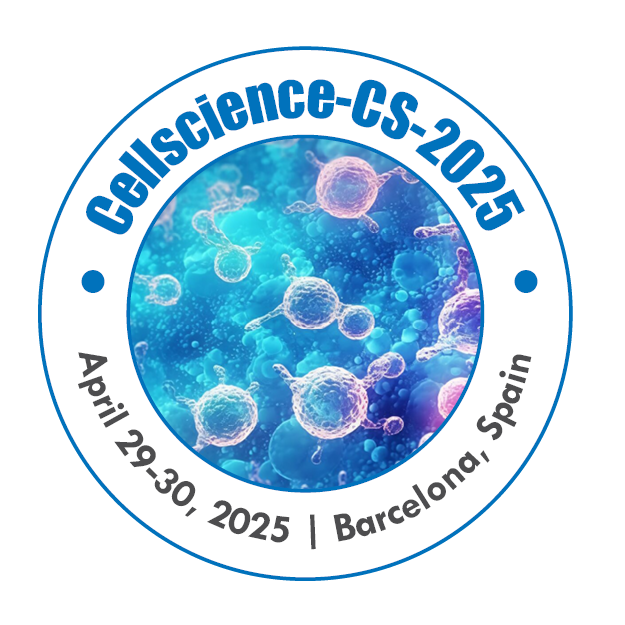Nanotechnology in Cell Biology
Nanotechnology has revolutionized cell biology by providing tools and techniques to study cells at the nanoscale, leading to a deeper understanding of cellular processes and enabling new applications in diagnostics and therapeutics. Nanoparticles, such as quantum dots, gold nanoparticles, and magnetic nanoparticles, are used as contrast agents for high-resolution imaging of cells and subcellular structures. They offer advantages such as increased sensitivity and multiplexing capabilities. Nanoparticles are used to deliver drugs, genes, or other therapeutic molecules into cells with high specificity and efficiency. They can protect the cargo from degradation and control its release, leading to improved therapeutic outcomes. Nanotechnology enables the development of nanoscale scaffolds and substrates for cell culture, mimicking the natural cell environment. These platforms can provide cues for cell adhesion, proliferation, and differentiation, making them valuable for tissue engineering and regenerative medicine. Nanotechnology tools, such as nanoscale sensors and probes, enable the analysis of individual cells in a population. This allows for the study of cellular heterogeneity and rare cell populations, which is critical for understanding complex biological processes and disease mechanisms. echniques like optogenetics, which use light-sensitive nanoparticles to control cellular activity, and nanoscale actuators for mechanical manipulation of cells, offer new ways to study and manipulate cellular functions.
Related Conference of Nanotechnology in Cell Biology
21th World Congress on Tissue Engineering Regenerative Medicine and Stem Cell Research
16th International Conference on Human Genetics and Genetic Diseases
19th International Conference on Genomics & Pharmacogenomics
Nanotechnology in Cell Biology Conference Speakers
Recommended Sessions
- Stem Cell Research and Therapy
- Cell and Tissue Engineering
- Bioinformatics and Systems Biology
- Cancer Biology and Cell Signaling
- Cell Cycle and Cell Division
- Cell Migration and Invasion
- Cellular Mechanotransduction
- Cellular Metabolism and Metabolic Disorders
- CRISPR and Genome Editing Technologies
- Developmental Biology and Regenerative Medicine
- Epigenetics and Epigenomics
- Microbiome and Host Interactions
- Molecular and Cellular Immunology
- Molecular Genetics and Gene Therapy
- Molecular Pathology and Diagnostics
- Nanotechnology in Cell Biology
- Neurobiology and Neurodegenerative Diseases
- Proteomics and Protein Engineering
- Signal Transduction and Cell
- Single-Cell Analysis and Applications
- Structural Biology and Molecular Dynamics
- Synthetic Biology and Bioengineering
Related Journals
Are you interested in
- 3D Bioprinting, Organ Fabrication & Bioartificial Tissues - Stem Cell 2026 (Netherlands)
- Aging Biology, Longevity Science & Cellular Rejuvenation - Stem Cell 2026 (Netherlands)
- Artificial Intelligence and Computational Biology in Regenerative Medicine - Stemgen 2026 (Japan)
- Bioinformatics, AI Models & Predictive Regeneration - Stem Cell 2026 (Netherlands)
- Biomaterials and Nanotechnology in Regenerative Medicine - Stemgen 2026 (Japan)
- Cancer Stem Cells & Targeted Therapeutics - Stem Cell 2026 (Netherlands)
- Cancer Stem Cells and Oncology - Stemgen 2026 (Japan)
- Cardiac, Vascular & Musculoskeletal Regeneration - Stem Cell 2026 (Netherlands)
- Cardiovascular Regeneration - Stemgen 2026 (Japan)
- Clinical Translation of Stem Cell Therapies - Stem Cell 2026 (Netherlands)
- Clinical Trials and Translational Stem Cell Research - Stemgen 2026 (Japan)
- Commercialization, Biobanking & Industry Innovations - Stem Cell 2026 (Netherlands)
- Ethical, Legal, and Social Implications in Stem Cell Research - Stemgen 2026 (Japan)
- Ethical, Regulatory & Quality Control Frameworks - Stem Cell 2026 (Netherlands)
- Exosomes, Extracellular Vesicles & Cell-Free Therapeutics - Stem Cell 2026 (Netherlands)
- Future Trends: Organoids, Bioengineering, and Next-Generation Therapies - Stemgen 2026 (Japan)
- Gene Editing and CRISPR Technologies - Stemgen 2026 (Japan)
- Gene Editing, CRISPR Therapies & Regenerative Genomics - Stem Cell 2026 (Netherlands)
- Induced Pluripotent Stem Cells (iPSCs) and Reprogramming - Stemgen 2026 (Japan)
- Mesenchymal Stem Cells (MSCs) in Therapy - Stemgen 2026 (Japan)
- Regeneration in Neurodegenerative & Spinal Cord Disorders - Stem Cell 2026 (Netherlands)
- Regenerative Approaches in Diabetes & Metabolic Disorders - Stem Cell 2026 (Netherlands)
- Regenerative Dentistry and Craniofacial Applications - Stemgen 2026 (Japan)
- Regenerative Immunology & Immune Modulation - Stem Cell 2026 (Netherlands)
- Regenerative Medicine and Tissue Engineering - Stemgen 2026 (Japan)
- Stem Cell Banking and Cryopreservation - Stemgen 2026 (Japan)
- Stem Cell Biology and Cellular Mechanisms - Stemgen 2026 (Japan)
- Stem Cell Engineering & Cellular Reprogramming - Stem Cell 2026 (Netherlands)
- Stem Cells in Neurological and Neurodegenerative Disorders - Stemgen 2026 (Japan)
- Tissue Engineering, Biomaterials & Smart Scaffolds - Stem Cell 2026 (Netherlands)

